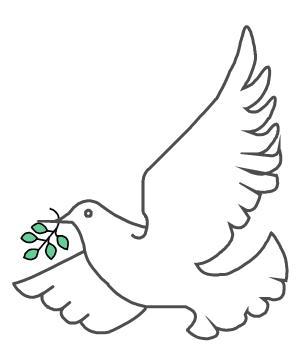Pastor Rio Espulgar
Minister for the Seventh-day Adventist Church
Burnt Lane, Gorleston
Challenges in the Rhythmus of Life
For many of us, life has developed a kind of rhythm, with good days and a few bad ones, times when we are emotionally up and times when we are down. There are sunny days, and other days when into our lives "a little rain must fall." Rhythm is a good way to describe this ebb and flow. We've accepted that, with the bright and the cheerful experiences, there will be occasional disappointments. We have become accustomed to a certain amount of disappointment that comes along with happier times.
Then, in the course of this rhythm of life, we get a terrific jolt, some shattering circumstance, which rocks the very foundation of our lives. It shocks us into recognizing our own frailty and finiteness. In the midst of that shock or disappointment can we say, "God is good"? Or should we say it?
There are times we think of ourselves to be invincible as we go through against the tide, but only to find out the current is much more st ronger than we expected and we find ourselves drowning. We tend to ask the question, Lord how long? How long will you not respond to my pleas. How long will I suffer in this cruel life? And when God seems to be silent, we are hurt.
ronger than we expected and we find ourselves drowning. We tend to ask the question, Lord how long? How long will you not respond to my pleas. How long will I suffer in this cruel life? And when God seems to be silent, we are hurt.
In the Bible, particularly in the Old Testament, the expression ‘how long O Lord’ is a typical of a lament. It implies a situation of crisis of a person who seeks for deliverance. For example, in Psalm 13 the use of this expression is frequent.
How long, Lord? Will you forget me forever? How long will you hide your face from me?
How long must I wrestle with my thought sad day after day have sorrow in my heart? How long will my enemy triumph over me? (salm 13:1,2)
Here we can find David, mourning for God’s absence when his enemies were winning the battle against his own kingdom. It seems to David that God has forgotten him. He is distress and perplexed. He utterly repeats the question ‘how long” which signifies the enormity of his desperation for help. Have you ever asked this question before? Was there a point in your life, when you asked, How long O Lord? How long will you hide your face from me?
A dear friend of mine who was known to be an inspiration to many was diagnosed of a dreaded illness called cancer. The devastating news was a blow to herself, family and friends. Her church family and friends came to visit and earnestly prayed for her. And yet she died few weeks later. She had left a vacuum in the hearts of many who knew her. I wonder to myself if she also asked the question, how long, O Lord will you hide your face from me?
But not only David who asked this question. Habakkuk begins his struggle to understand God’s purpose with a cry of bewilderment. In Habakkuk 1:1 it says, “How long, Lord, must I call for help, but you do not listen? Or cry out to you, ? "Violence!" but you do not save?" Being a Prophet, Habakkuk knows how much God loves justice and hates oppression, so he wants to know why God allows injustice to happen. He notices that wickedness seems to triumph over righteous.
David and Habakkuk are just two examples in the Bible who asked God the question, “How long?” But there are more others who used the same expression, showing how desperate they are for help and deliverance. So, how did God respond  to the questions of David and Habakkuk?
to the questions of David and Habakkuk?
In the last two verses of Psalm 13, surprisingly, David’s pleas are turned to praises. It says, “But I trust in your unfailing love;my heart rejoices in your salvation. I will sing the Lord’s praise, for he has been good to me. "How did it happen? It was David's trust in God that changed his perspective about the challenges he was facing. For David, he may not have received a straight answer to his question but knowing the fact that God loves him so much, gives him comfort and hope. Matthew Henry, in his commentary on Psalm 13, stated, "What a surprising change is here in a few lines! In the beginning of the Psalm we have him drooping, trembling, and ready to sink into melancholy and despair; but, in the close of it, rejoicing in God, and elevated and enlarged in his praises. See the power of faith, the power of prayer, and how good it is to draw near to God.
In the case of Habakkuk, the ultimate answer to his question was the affirmation of God’s abiding presence. Habakkuk receives comfort knowing that God is in charged of the situation. God has promised not only deliverance for the kingdom of Judah but he also promised to punish Babylon (Habakkuk 2: 6,9,12,15,19). It was Habakkuk trusts in God’s presence and confidence in His judgment in spite of the appearances to the contrary that has changed his perspective about life’s challenges.
Friends, in this world we will face tribulations and disappointments. There will be challenges to the regular rhythm of life. The question is not, Will they come? Yes, they will. The question is, “How will you respond? How will you and I respond to these challenges, these unwanted, unexpected circumstances?" I pray that we remain faithful and loyal to our commitment to God come what may. Let’s hold fast and keep the faith.